Welcome to my journey as I delve into the world of cooked onions and uncover their nutritional value and health benefits. Onions are a versatile and nutritious superfood that can greatly enhance the flavor and health benefits of your dishes. Cooked onions retain their robust flavor profile and can be easily incorporated into various recipes without the hassle of peeling and chopping.
They have a long shelf life, so you can always have them on hand. The dehydration process preserves the nutrients present in fresh onions, including antioxidants that support heart health and immune function. In addition, onions are high in vitamin C, dietary fiber, and folic acid, and they contain calcium, iron, and protein. They are also rich in quercetin, an antioxidant compound that may reduce the risk of heart disease, cancer, and other age-related illnesses.
Onions are a versatile ingredient that can be used in a wide variety of dishes, from soups and stews to marinades and spice blends, and they have numerous health benefits. They are known for their anti-inflammatory properties, digestive health benefits, and potential cancer-fighting effects. Onions also support heart health by reducing LDL cholesterol levels, blood pressure, and the formation of blood clots. They can boost the immune system and promote a healthy gut microbiome.
Whether raw or cooked, onions provide a powerful punch of flavor and nutrition. So, incorporate onions into your cooking to unlock the healthy secrets they hold.
Key Takeaways:
- Cooked onions retain their robust flavor and can be easily incorporated into various recipes.
- They are rich in antioxidants, vitamin C, dietary fiber, and folic acid.
- Onions contain calcium, iron, and protein.
- Quercetin, an antioxidant compound in onions, may reduce the risk of heart disease and cancer.
- Onions have anti-inflammatory properties, promote digestive health, and support a healthy gut microbiome.
The Basics of Onions Nutrition
Before we dive into the benefits of cooked onions, let’s explore their nutritional value and discover why they are a nutritious addition to your meals. Onions are low in calories and packed with essential nutrients that can contribute to a balanced diet.
One cup of cooked onions provides approximately 115 calories and offers a good amount of dietary fiber, which aids in digestion and helps maintain a healthy weight. Onions are also a rich source of vitamin C, an antioxidant that boosts the immune system and promotes healthy skin. Additionally, they contain folate, a B vitamin that is crucial for cell growth and development.
Moreover, cooked onions are a great source of quercetin, a powerful antioxidant that has been shown to have anti-inflammatory properties. Quercetin may help reduce the risk of chronic conditions such as heart disease and cancer. Onions also contain sulfur compounds that have antimicrobial and antibacterial effects, supporting overall immune function.
| Nutrient | Amount per 1 cup (160g) of Cooked Onions |
|---|---|
| Calories | 115 |
| Dietary Fiber | 3 grams |
| Vitamin C | 12% of the Recommended Daily Intake (RDI) |
| Folate | 17% of the RDI |
| Quercetin | Varies |
| Sulfur Compounds | Varies |
So, by including cooked onions in your meals, you can enjoy their nutritional benefits while adding flavor and depth to your dishes. From stir-fries to salads and everything in between, cooked onions can be a versatile and delicious addition to your culinary creations.
Stay tuned for the next section where we will dive deeper into the antioxidant powerhouse of cooked onions and their potential health benefits.
Antioxidant Powerhouse: Cooked Onions and Their Nutrients
Cooked onions are not only delicious but also packed with essential nutrients, including powerful antioxidants that can benefit your overall health. When onions are cooked, their antioxidant properties are enhanced, making them an excellent addition to a balanced diet.
One of the key antioxidants found in cooked onions is quercetin. This compound has been shown to have anti-inflammatory and anti-cancer effects, as well as potential cardiovascular benefits. Quercetin works by neutralizing harmful free radicals in the body, which can cause oxidative stress and damage to cells.
Furthermore, cooked onions contain sulfur compounds, such as allyl sulfides, which have been linked to a lower risk of certain types of cancer, including stomach, colorectal, and prostate cancer. These compounds not only provide the distinctive flavor of onions but also play a role in promoting optimal health.
Another notable nutrient found in cooked onions is vitamin C. This vitamin is known for its immune-boosting properties and its role in collagen synthesis, which supports healthy skin, bones, and connective tissues. Additionally, cooked onions are a good source of dietary fiber, which aids in digestion and promotes a healthy gut microbiome.
To make the most of the nutritional benefits of cooked onions, consider incorporating them into your favorite recipes. Whether you sauté them as a base for soups and stews, use them in flavorful marinades, or add them to spice blends for an extra kick, cooked onions can elevate the taste and nutritional value of your meals.
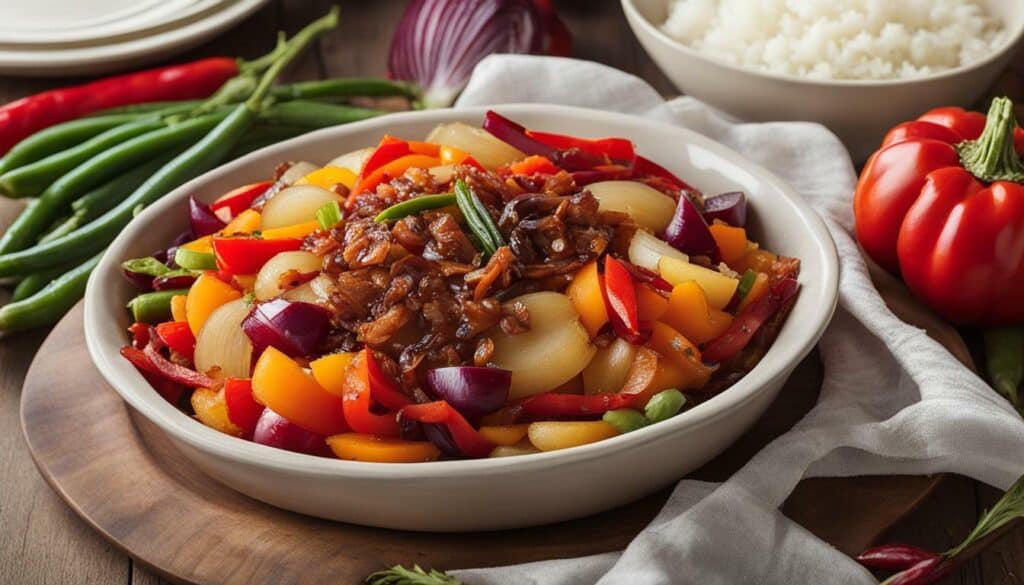
| Nutrient | Amount per 100g serving |
|---|---|
| Quercetin | 27.3 mg |
| Vitamin C | 7.4 mg |
| Dietary Fiber | 1.7 g |
| Calcium | 23 mg |
| Iron | 0.2 mg |
| Protein | 1.2 g |
The Health Benefits of Eating Cooked Onions
Incorporating cooked onions into your diet can offer a wide range of health benefits, from supporting heart health to boosting your immune system. Onions are rich in antioxidants, which can help protect your body against harmful free radicals and reduce the risk of chronic diseases, such as heart disease and certain types of cancer. They are also packed with essential nutrients, including vitamin C, dietary fiber, and folic acid, which are important for overall health and wellbeing.
One of the key health benefits of cooked onions is their anti-inflammatory properties. Onions contain compounds that can help reduce inflammation in the body, which is linked to various health conditions, including arthritis, asthma, and inflammatory bowel disease. By incorporating cooked onions into your meals, you can potentially alleviate inflammation and improve your overall health.
Furthermore, onions have been found to have potential cancer-fighting effects. The high levels of quercetin, a powerful antioxidant found in onions, may help inhibit the growth of cancer cells and reduce the risk of certain cancers, such as colorectal and stomach cancer. Including cooked onions in your diet on a regular basis can be a delicious way to potentially reduce your risk of developing cancer.
Quote:
“Onions are not only versatile and delicious, but they also offer a wide range of health benefits. Incorporating cooked onions into your meals can provide you with essential nutrients and antioxidants that support your overall health and wellbeing.”
In addition to these specific health benefits, cooked onions can also promote a healthy gut microbiome. They contain prebiotic fibers that nourish the beneficial bacteria in your gut, which play a crucial role in digestion, nutrient absorption, and immune function. By supporting a healthy gut microbiome, cooked onions can contribute to improved digestion and a stronger immune system.
To make the most of the health benefits of cooked onions, try incorporating them into various dishes. They can be sautéed with vegetables, added to soups and stews, or used as a topping for grilled meats or salads. The possibilities are endless! So, next time you’re cooking, don’t forget to include cooked onions to add flavor and unlock their nutritious benefits.
| Nutrient | Amount per 100g |
|---|---|
| Calories | 40 |
| Protein | 1.1g |
| Fat | 0.1g |
| Carbohydrate | 9.3g |
| Fiber | 1.7g |
| Vitamin C | 8.4mg |
| Folate | 19mcg |
| Potassium | 146mg |
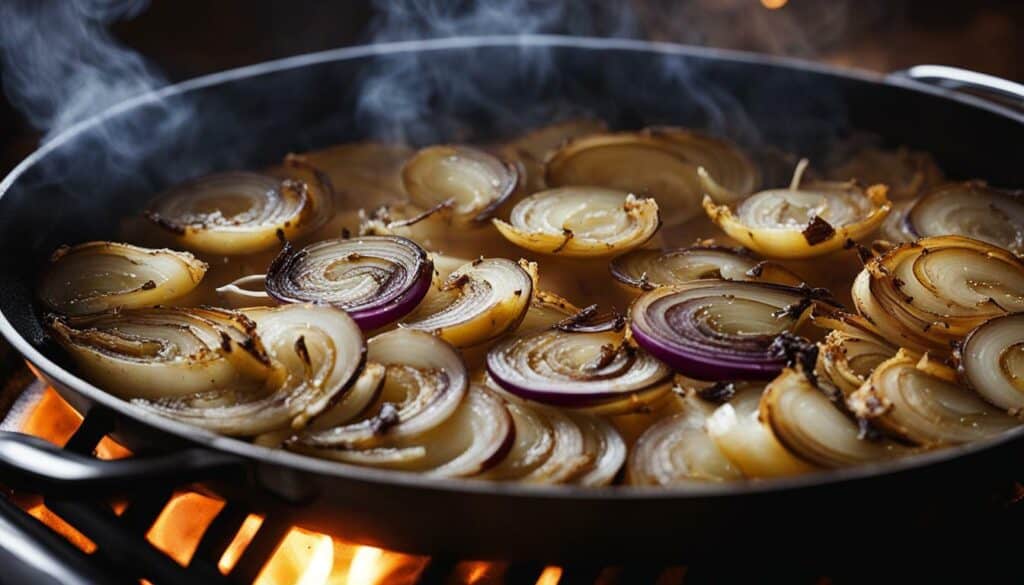
Wondering if cooking onions affects their nutrition? Let’s explore how to cook onions for optimal health benefits. Onions, when cooked, retain their nutritional value and can be a delicious addition to your meals. They are packed with essential vitamins, minerals, and antioxidants that support overall health.
When cooking onions, it’s important to consider the method and duration of cooking to preserve their nutrients. For example, lightly sautéing or steaming onions can help retain more of their nutritional content compared to deep-frying or overcooking them. The longer you cook onions, the more their nutrients may degrade.
One way to maximize the health benefits of cooked onions is to add them to your dishes towards the end of the cooking process. This ensures that they retain their robust flavor while still providing you with their nutritional goodness. You can toss cooked onions into stir-fries, soups, and stews, or use them as a flavorful topping for grilled meats or roasted vegetables.
| Nutrient | Amount per 100g |
|---|---|
| Vitamin C | 7.4 mg |
| Dietary Fiber | 1.7 g |
| Calcium | 23 mg |
| Iron | 0.21 mg |
| Protein | 0.9 g |
As you can see, cooked onions are a great source of vitamins, fiber, and minerals. They can provide a natural boost to your immune system, support digestion, and contribute to overall well-being. So, don’t hesitate to experiment with cooking onions in different ways to enjoy their incredible flavor and nutritional benefits.
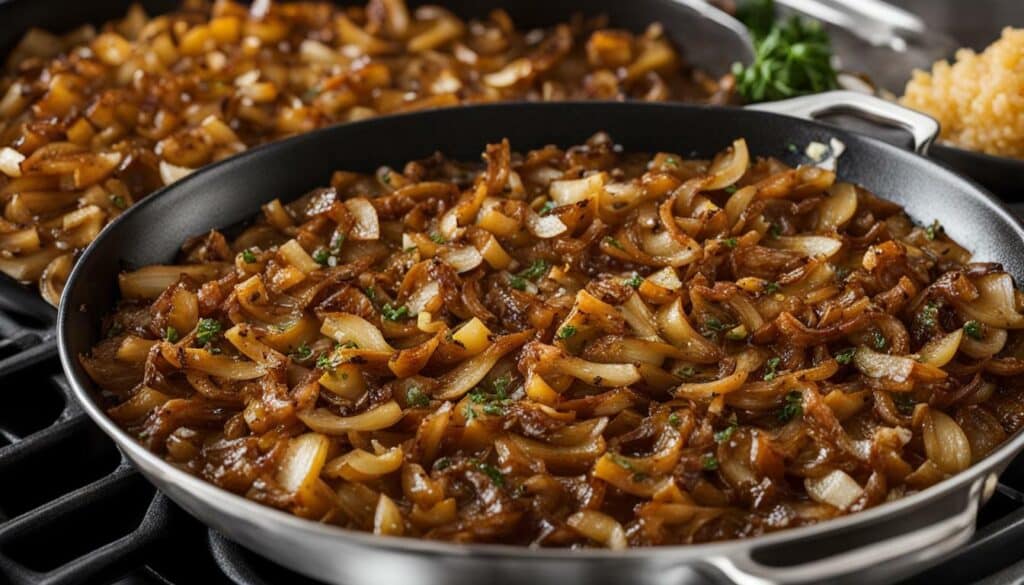
Incorporating cooked onions into your diet is easy and versatile. You can add them to salads, sandwiches, pasta dishes, or even use them as a topping for pizza. Their sweet and savory taste can complement various flavors, making them a versatile ingredient for any culinary creation.
In conclusion, cooking onions doesn’t diminish their nutritional value but rather enhances their flavor and health benefits. So, go ahead and explore the world of cooked onions in your kitchen. Your taste buds and your body will thank you for it!
Nutritional Highlights: Cooked Onions and Their Vitamins
Cooked onions boast an impressive array of vitamins, providing a nutritious boost to your meals. They are particularly rich in vitamin C, which plays a key role in supporting a healthy immune system and promoting collagen production for healthy skin and connective tissues. Vitamin C also acts as an antioxidant, protecting the body against oxidative stress and free radicals.
Additionally, cooked onions contain significant amounts of B vitamins, including folate (vitamin B9), which is crucial for DNA synthesis and cell division. Folate is especially important for pregnant women as it supports the development of the baby’s neural tube. Vitamin B6, another B vitamin found in cooked onions, plays a role in brain development and function, energy metabolism, and the production of neurotransmitters.
When it comes to minerals, cooked onions are a good source of calcium and iron. Calcium is essential for healthy bones and teeth, nerve function, and muscle contraction. Iron, on the other hand, is vital for the transportation of oxygen in the blood and the production of red blood cells.
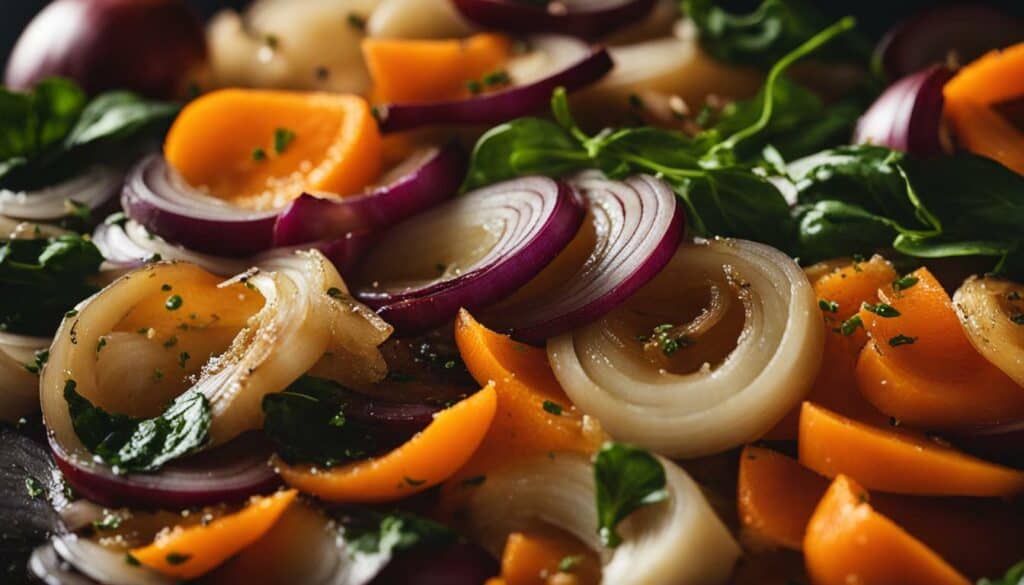
Incorporating cooked onions into your meals not only adds depth of flavor but also enhances the nutritional content. They are incredibly versatile and can be used in various dishes, such as stir-fries, omelets, salads, or as a topping for grilled meats and sandwiches.
Delicious Recipe Idea: Balsamic Glazed Roasted Onions
- Preheat your oven to 400°F (200°C).
- Peel and slice two large onions into thick rounds.
- Place the onion rounds on a baking sheet and drizzle with olive oil, balsamic vinegar, and a sprinkle of salt and pepper.
- Toss the onions to ensure they are evenly coated, then spread them out in a single layer.
- Roast in the oven for about 25-30 minutes, or until the onions are tender and caramelized.
- Serve the roasted onions as a side dish or use them as a flavorful topping for burgers, sandwiches, or salads.
In conclusion, cooked onions are not only delicious but also offer a wealth of vitamins to support your overall health. So, don’t hesitate to incorporate them into your meals and enjoy the flavorful and nutritious benefits they provide.
Incorporating Cooked Onions into Your Diet
Ready to spice up your meals with cooked onions? Let’s explore creative ways to incorporate them into your diet. Cooked onions can add depth and complexity to a wide range of dishes, from comforting soups and stews to vibrant stir-fries and flavorful sauces. Their versatility and delicious taste make them a go-to ingredient for many culinary enthusiasts.
To get started, consider adding sautéed onions to your morning omelet or scrambled eggs. The sweetness and caramelized flavor of cooked onions can elevate your breakfast to a whole new level. You can also incorporate cooked onions into your lunch or dinner by using them as a base for savory sauces, adding them to hearty grain bowls, or topping off grilled meats and veggies for an extra burst of flavor.
If you’re looking for a healthy and satisfying snack, consider making onion chips by thinly slicing onions, tossing them in olive oil, and baking them until crispy. These homemade chips are a guilt-free alternative to traditional potato chips and provide a satisfying crunch. You can also blend cooked onions into creamy dips and spreads or incorporate them into your favorite casseroles and baked dishes.
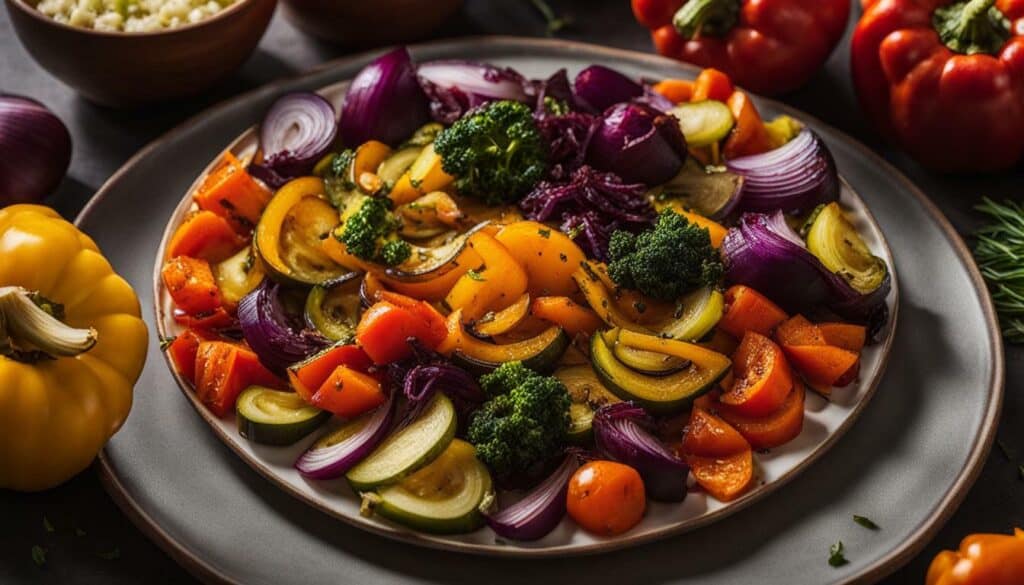
Cooked onions can also be used as a condiment or topping to enhance the flavor of your meals. From adding them to sandwiches and burgers to sprinkling them on top of salads or pizzas, the possibilities are endless. Experiment with different cooking methods, such as roasting or grilling, to bring out unique flavors and textures in your cooked onions.
Here are some more ideas to incorporate cooked onions into your diet:
- Blend cooked onions into creamy soups, such as potato or butternut squash soup, for added richness and depth of flavor.
- Add cooked onions to pasta dishes, like spaghetti or fettuccine, for a savory twist.
- Incorporate cooked onions into your favorite Mexican dishes, such as tacos, enchiladas, or quesadillas, for a burst of flavor.
- Use cooked onions as a pizza topping along with your favorite ingredients for a delicious and aromatic homemade pizza.
- Make a flavorful onion-based gravy or sauce to accompany roasted meats or mashed potatoes.
Get creative in the kitchen and experiment with different recipes and cooking techniques to discover new ways to incorporate cooked onions into your diet. Whether you’re looking to enhance the flavor of your meals or reap the health benefits, cooked onions are a versatile and nutritious ingredient that can elevate your cooking to new heights.
| Health Benefits of Cooked Onions | Nutrients |
|---|---|
| Support heart health | Quercetin, antioxidants |
| Aid digestion | Dietary fiber |
| Promote a healthy gut microbiome | Prebiotics |
| Boost the immune system | Vitamin C |
| Reduce the risk of certain cancers | Antioxidants |
Advantages of Eating Cooked Onions
There are numerous advantages to adding cooked onions to your dishes, ranging from improved digestion to potential cancer-fighting effects. Onions are packed with dietary fiber, which aids in digestion and helps maintain a healthy gut. The fiber content also contributes to feelings of fullness, making cooked onions a great addition to weight management diets. Additionally, onions contain prebiotics, which promote the growth of beneficial bacteria in the gut, supporting a healthy microbiome.
Another advantage of consuming cooked onions is their potential cancer-fighting properties. Onions are rich in sulfur compounds, such as allyl sulfides and quercetin, which have been shown to inhibit the growth of cancer cells and reduce the risk of certain types of cancer, including stomach, colorectal, and prostate cancers. These compounds have also been found to have anti-inflammatory effects, which can further contribute to cancer prevention.
Cooked onions are not only beneficial for digestive health and cancer prevention, but they also help support a strong immune system. Onions are an excellent source of vitamin C, an essential nutrient that strengthens the immune system and promotes the production of collagen, necessary for healthy skin and wound healing. Furthermore, the antioxidants present in cooked onions help protect cells from free radical damage, supporting overall immune function.
Cooked Onions: A Flavorful Addition to Your Meals
When it comes to incorporating cooked onions into your diet, the possibilities are endless. They add depth and flavor to various dishes, including soups, stews, stir-fries, and even salads. You can also use cooked onions as a delicious topping for burgers and sandwiches. Experiment with different cooking methods like sautéing, roasting, or caramelizing to enhance their natural sweetness and bring out their unique flavors.
To maximize the health benefits of cooked onions, it’s important to avoid overcooking them. Heating onions for a short period of time helps preserve their nutrients and ensures they retain their distinct taste. Remember to include other colorful vegetables and a variety of spices and herbs to create a well-balanced and nutritious meal.
Add cooked onions to your favorite recipes and discover the incredible flavor and health benefits they provide. Whether you’re looking to support your immune system, aid digestion, or reduce the risk of cancer, cooked onions are a versatile and nutritious ingredient that should have a place in your kitchen.
| Nutrient | Amount per 100g |
|---|---|
| Vitamin C | 7.4 mg |
| Fiber | 1.7 g |
| Calcium | 23 mg |
| Iron | 0.2 mg |
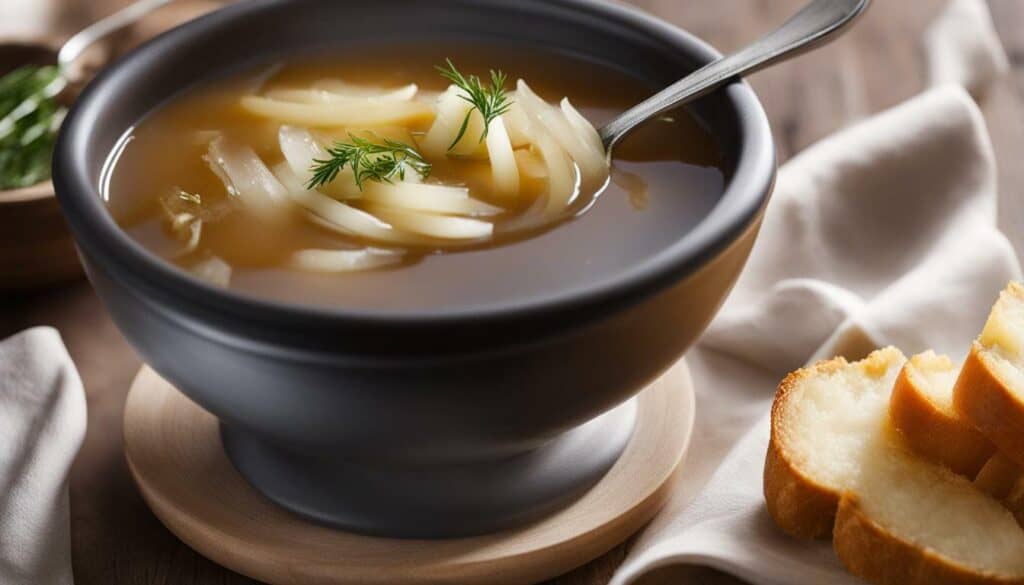
Not only do cooked onions provide a healthy flavor boost to your meals, but they also offer a wide range of nutritional benefits. Incorporating cooked onions into your diet can enhance the taste of your favorite dishes while providing essential nutrients. Cooked onions retain their natural robust flavor profile, making them a versatile ingredient in a variety of recipes.
When onions are cooked, they retain their nutrient content, including antioxidants that support heart health and boost the immune system. Onions are packed with vitamin C, dietary fiber, and folic acid, which are all essential for a healthy diet. They also contain calcium, iron, and protein, making them a nutrient-dense addition to your meals.
One key compound found in onions is quercetin, a powerful antioxidant that may help reduce the risk of heart disease, cancer, and other age-related illnesses. Onions also possess anti-inflammatory properties, promote digestive health, and may have potential cancer-fighting effects. Additionally, they can support heart health by reducing LDL cholesterol levels, blood pressure, and the formation of blood clots.
Incorporating cooked onions into your meals is easy. Whether you’re adding them to soups, stews, marinades, or spice blends, cooked onions can elevate the flavor of your dishes while providing numerous health benefits. With their long shelf life, you can always have cooked onions on hand to enhance the taste and nutritional value of your favorite recipes.

So, don’t underestimate the power of cooked onions. They not only add depth and flavor to your meals but also provide a host of health benefits. Make onions a staple in your cooking and unlock the healthy secrets they hold.
Conclusion
In conclusion, cooked onions are a hidden gem when it comes to nutrition, and incorporating them into your diet can contribute to good health and delicious meals. Their versatile nature allows you to easily add them to a variety of dishes, enhancing both the flavor and nutritional value. By cooking onions, you are able to retain their robust flavor profile and take advantage of the many health benefits they offer.
When onions are cooked, they preserve the nutrients found in fresh onions, making them a rich source of antioxidants that support heart health and immune function. Additionally, cooked onions are high in vitamin C, dietary fiber, and folic acid, while also containing calcium, iron, and protein. These nutritional highlights make cooked onions a valuable addition to any balanced diet.
But the benefits don’t stop there. Cooked onions are known for their anti-inflammatory properties, digestive health benefits, and potential cancer-fighting effects. They can improve heart health by reducing LDL cholesterol levels, blood pressure, and the formation of blood clots. Onions also have the ability to boost your immune system and promote a healthy gut microbiome. Their numerous health benefits make them an essential ingredient to consider.
So, whether you choose to enjoy raw or cooked onions, their flavor and nutritional value are undeniable. Be sure to incorporate onions into your cooking to unlock the healthy secrets they hold. Discover the wonders of cooked onions by exploring new recipes and experimenting with different cooking methods. Your taste buds and your body will thank you.
FAQ
Q: Are cooked onions as nutritious as raw onions?
A: Yes, cooking onions does not significantly reduce their nutritional value. In fact, some nutrients become more easily absorbed by the body when they are cooked.
Q: How can I incorporate cooked onions into my meals?
A: Cooked onions can be used in a variety of dishes, such as soups, stews, stir-fries, pasta sauces, and even as a topping for sandwiches or burgers. Get creative and experiment with different recipes!
Q: Can cooked onions help with digestive health?
A: Yes, cooked onions are known for their digestive health benefits. They can help stimulate the production of digestive enzymes and support a healthy gut microbiome.
Q: Are there any specific health benefits of eating cooked onions?
A: Absolutely! Cooked onions have anti-inflammatory properties, can lower LDL cholesterol levels, reduce blood pressure, and potentially have cancer-fighting effects. They also support heart health and boost the immune system.
Q: How long can cooked onions be stored?
A: Cooked onions can be stored in the refrigerator for up to 5 days. Make sure to store them in an airtight container to maintain their freshness.
Q: Can I freeze cooked onions?
A: Yes, you can freeze cooked onions. Just make sure to let them cool completely before transferring them to a freezer-safe container or bag.
Q: Do cooked onions lose their flavor?
A: No, cooked onions still retain their robust flavor. In fact, cooking can enhance the flavor of onions and make them even more delicious.
Q: Can I use different types of onions when cooking?
A: Absolutely! Different types of onions, such as yellow, white, or red onions, can be used interchangeably in cooking. They all offer similar nutritional benefits and add a unique flavor to your dishes.
Q: Are there any specific cooking techniques that preserve the nutrients in onions?
A: Steaming or sautéing onions can help retain more of their nutrients compared to boiling. However, regardless of the cooking method, onions still offer a wide range of health benefits.
Q: Can cooked onions be used as a substitute for raw onions in recipes?
A: Yes, cooked onions can be a great substitute for raw onions in recipes. They still add flavor and nutritional value to your dishes, and you don’t have to worry about the pungent taste of raw onions.
Are Onions a Healthy Addition to BBQ Recipes?
Onions, a versatile and flavorful ingredient, can indeed enhance the taste of BBQ recipes. Their pungent and sweet flavor adds depth to marinades, sauces, and meat rubs. The caramelization process during cooking intensifies their taste, creating a rich and smoky experience. So, indulge in a flavorful journey through bbq fats with onions and savor the delightful combination they bring to your grill masterpieces.

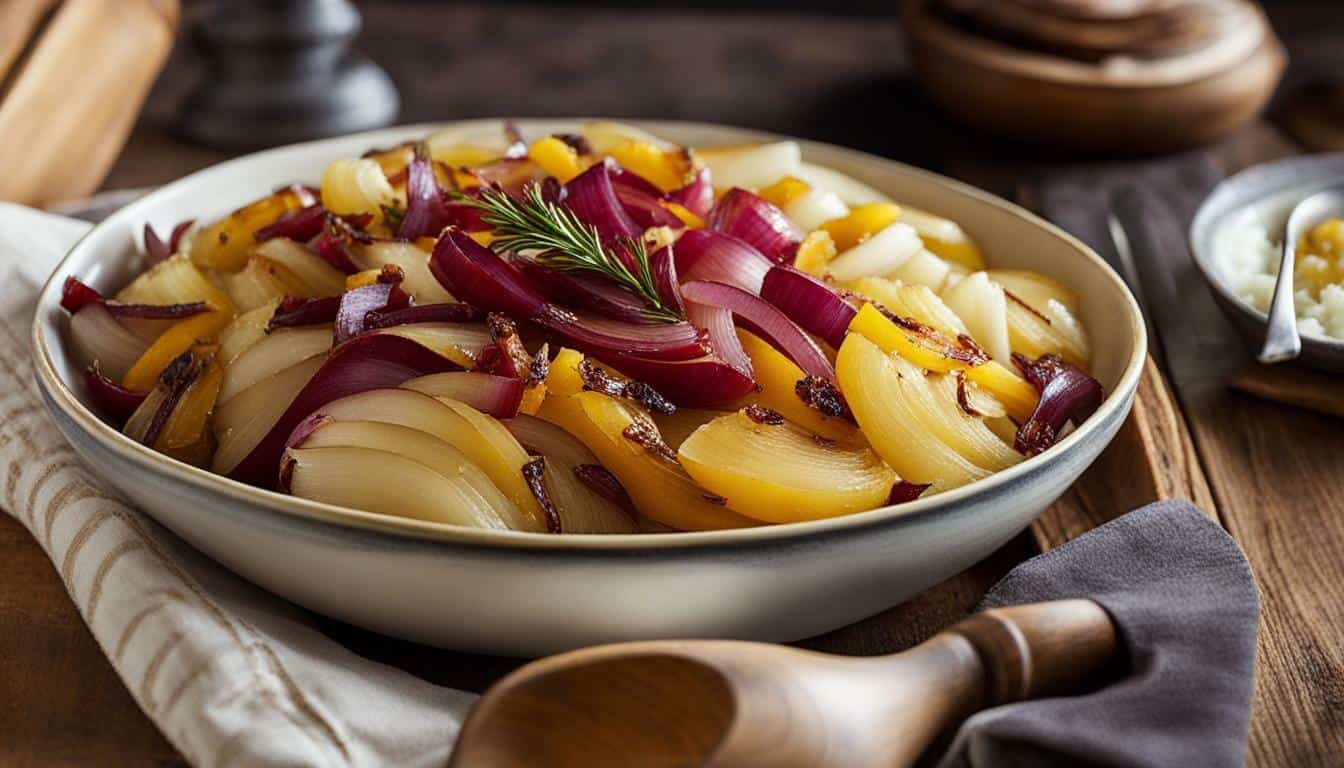
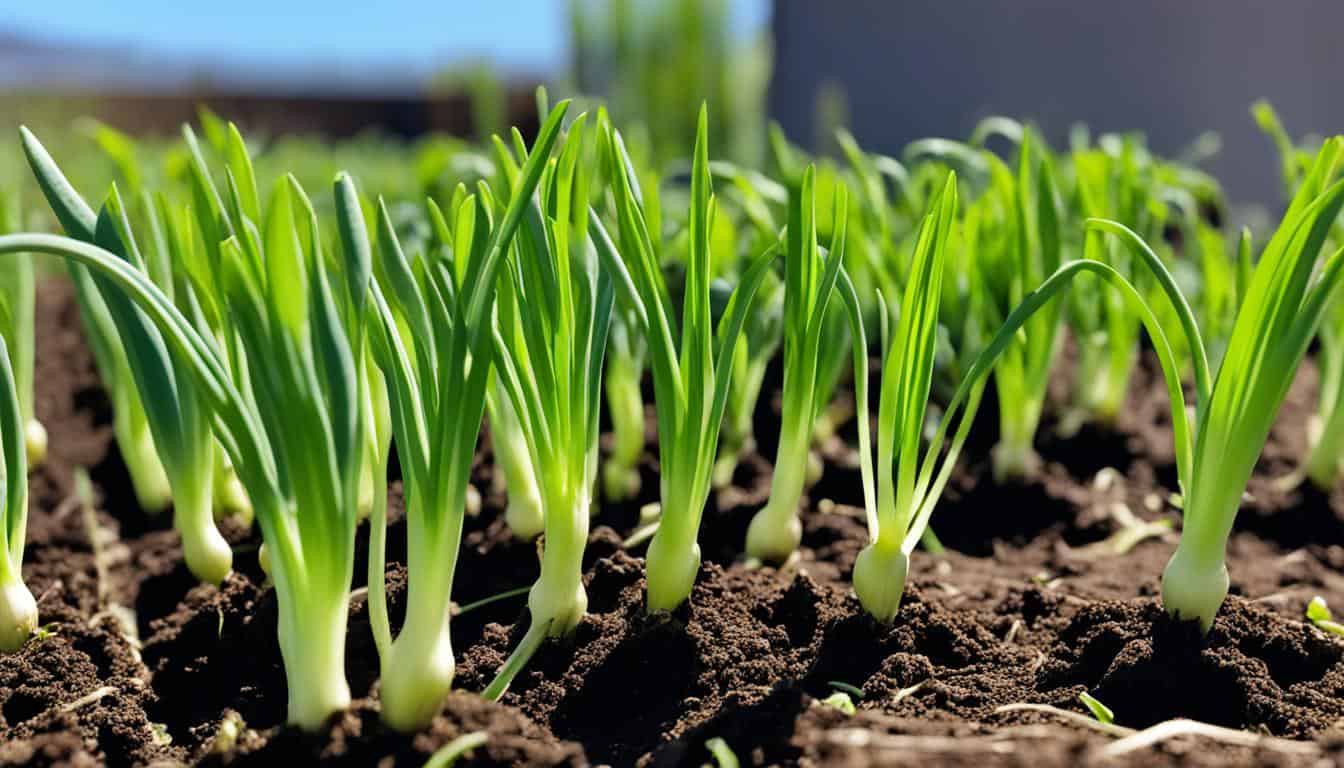
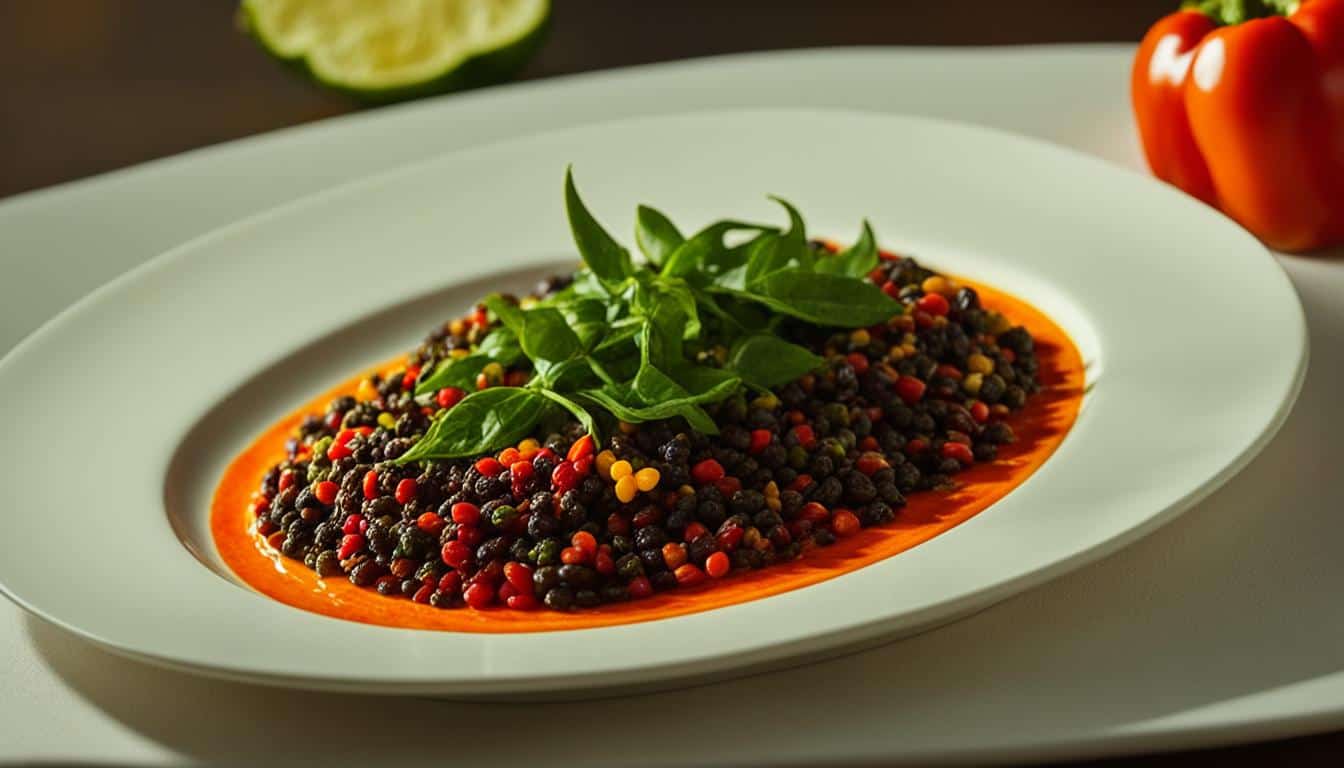
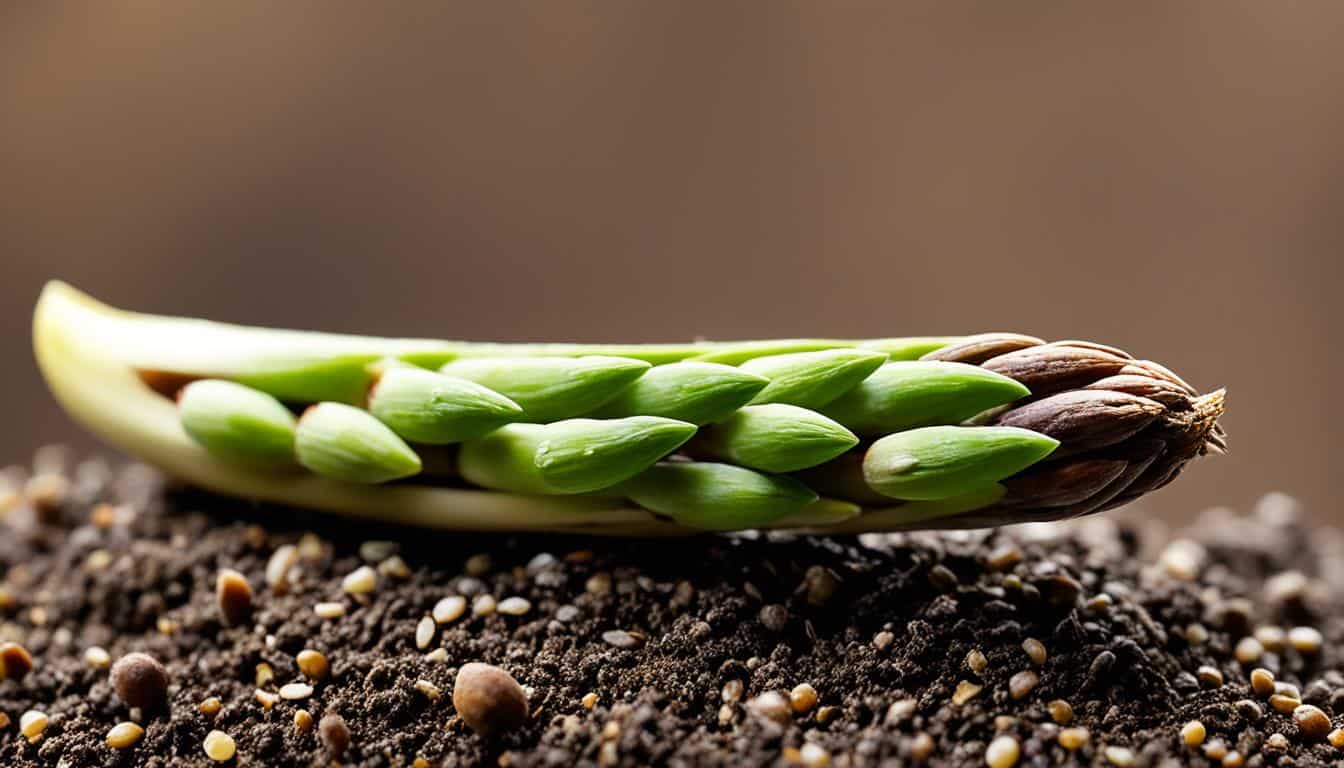
Leave a Reply